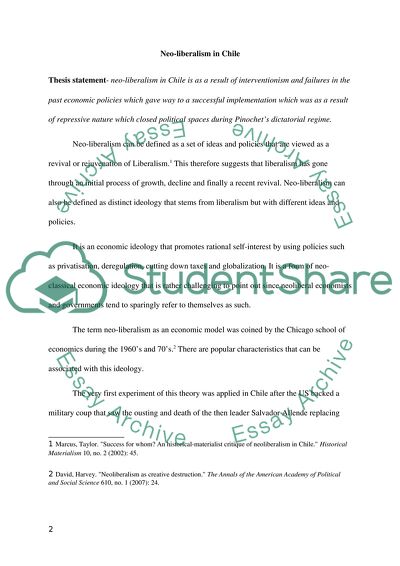Cite this document
(Neo-Liberalism as an Economic and Political Doctrine in Chile Coursework Example | Topics and Well Written Essays - 3000 words, n.d.)
Neo-Liberalism as an Economic and Political Doctrine in Chile Coursework Example | Topics and Well Written Essays - 3000 words. https://studentshare.org/politics/1844843-chile-and-neoliberalism
Neo-Liberalism as an Economic and Political Doctrine in Chile Coursework Example | Topics and Well Written Essays - 3000 words. https://studentshare.org/politics/1844843-chile-and-neoliberalism
(Neo-Liberalism As an Economic and Political Doctrine in Chile Coursework Example | Topics and Well Written Essays - 3000 Words)
Neo-Liberalism As an Economic and Political Doctrine in Chile Coursework Example | Topics and Well Written Essays - 3000 Words. https://studentshare.org/politics/1844843-chile-and-neoliberalism.
Neo-Liberalism As an Economic and Political Doctrine in Chile Coursework Example | Topics and Well Written Essays - 3000 Words. https://studentshare.org/politics/1844843-chile-and-neoliberalism.
“Neo-Liberalism As an Economic and Political Doctrine in Chile Coursework Example | Topics and Well Written Essays - 3000 Words”. https://studentshare.org/politics/1844843-chile-and-neoliberalism.


